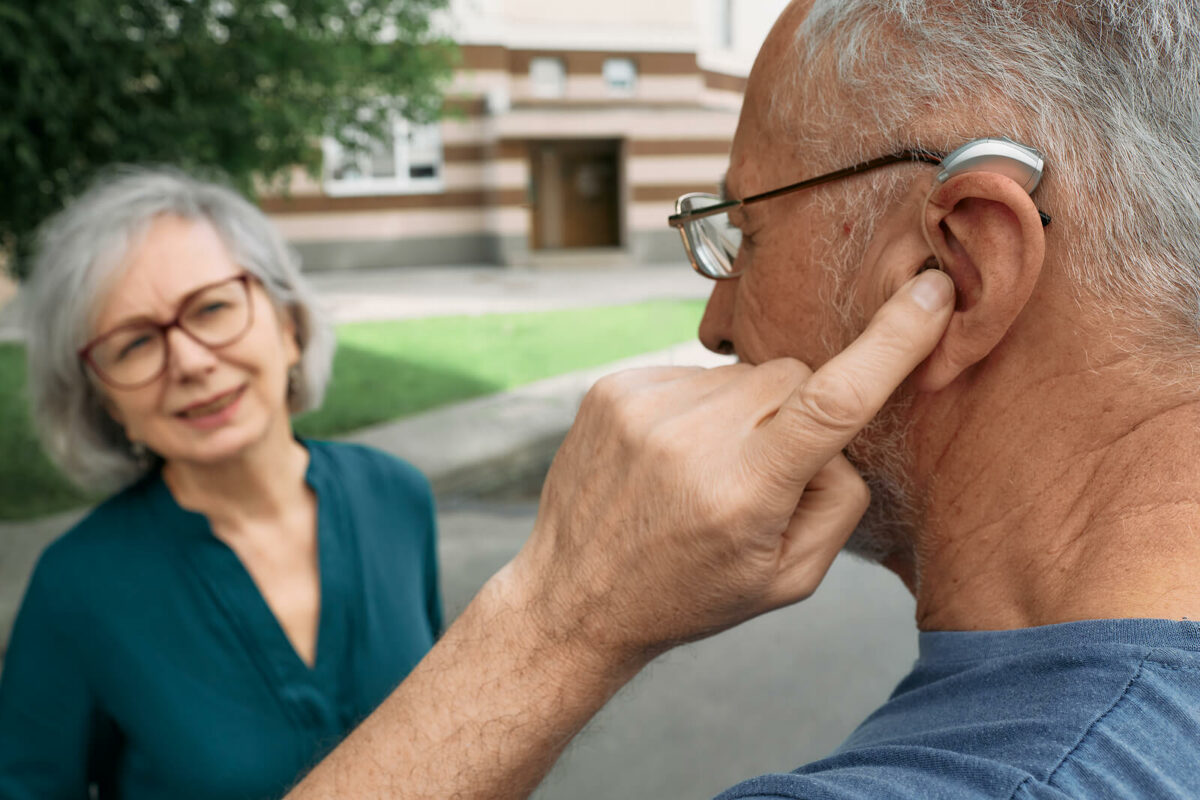- Summer Sports and Their Impact on Hearing Health - July 15, 2024
- Should You Disclose Your Hearing Loss? - July 3, 2024
- What Is the Impact of Smoking and Alcohol on Hearing? - June 25, 2024
As we age, our ability to hear and engage with the world becomes increasingly vital. However, hearing loss is a common challenge faced by many seniors, impacting communication, relationships, and overall well-being. Here are some of the subtle signs and symptoms that may indicate hearing loss in seniors.
Hearing Loss in Seniors
Hearing loss is not just a natural part of aging; it is a prevalent condition that can have profound effects on seniors’ quality of life. It can impact seniors’ mental, emotional, and physical health. Recognizing the signs early on is important for addressing hearing loss and preventing further consequences.
Common Signs of Hearing Loss in Seniors
Some of the common signs of hearing loss in older adults include:
- Difficulty Understanding Spoken Words: A sign of hearing loss is difficulty understanding spoken words, especially in noisy environments. Seniors may struggle to follow conversations, ask others to repeat themselves frequently or appear disengaged during group discussions.
- Increasing TV or Radio Volume: If a senior is consistently turning up the volume on the television or radio to levels that others find uncomfortable, it could be a sign of hearing loss. Increased volume may be an attempt to compensate for difficulty hearing softer sounds.
- Avoiding Social Gatherings: Seniors experiencing hearing loss may withdraw from social activities or avoid gatherings altogether. The challenges of participating in conversations, especially in bustling environments, can lead to feelings of isolation and frustration.
- Misinterpretation or Responding Inappropriately: Difficulty hearing can result in misinterpreting spoken words, leading to unrelated responses. If a senior consistently responds in a way that seems disconnected from the conversation, it may indicate a struggle to understand the context.
- Complaints of Tinnitus or Ear Pain: Tinnitus, the perception of ringing or buzzing in the ears, is often associated with hearing loss. Seniors may complain of persistent noises in their ears or experience discomfort or pain in one or both ears.
- Struggling with Phone Conversations: Hearing loss can make phone conversations challenging. Seniors may find it difficult to hear the person on the other end, leading to frequent requests for repetition.
- Difficulty Hearing High-Pitched Sounds: High-frequency sounds, such as birdsong or the ringing of a doorbell, may become increasingly challenging for seniors with hearing loss to perceive. This can impact their awareness of their surroundings and diminish the richness of their hearing experience.
- Changes in Speech and Language Patterns: Seniors with hearing loss may exhibit changes in their speech and language patterns. They may speak more loudly or struggle to articulate certain sounds. These changes can be subtle but may indicate hearing loss.
Taking Action: Encouraging Hearing Health in Seniors
Create an open dialogue about hearing health. Encourage seniors to express any concerns or difficulties they may be experiencing with their hearing. Open communication fosters a supportive environment and will help them reach out for support.
- Promoting Hearing Protection: Encourage the use of hearing protection in noisy environments, especially if seniors engage in activities such as concerts, workshops, or other events with loud sounds. Limiting exposure to loud noises can help preserve hearing health.
- Implementing Home Modifications: Make home modifications to create an acoustically friendly environment. Reduce background noise, use carpets or area rugs to absorb sound, and position furniture strategically. This can contribute to a more comfortable living space for seniors with hearing loss.
- Educating Caregivers and Family Members: Ensure that caregivers and family members are aware of the signs of hearing loss and the potential impact on seniors’ overall well-being.
- Encouraging Social Engagement: Going to regular social activities supports mental and emotional well-being and provides opportunities for continued communication practice.
- Incorporating Hearing-Friendly Technology: Explore hearing-friendly technology, such as captioned telephones or smartphone apps designed for individuals with hearing loss. These tools can enhance communication and connectivity for seniors.
- Regular Hearing Checkups: Regular hearing checkups are fundamental in monitoring and addressing age-related hearing loss. Encourage seniors to schedule routine appointments for comprehensive hearing assessments.
The Journey Starts Today
Recognizing the signs of hearing loss in seniors is the first step on the journey to better hearing. If you’ve noticed signs of hearing loss in a loved one, encourage them to book a hearing test. With the right hearing aids, they can get back to enjoying all the sounds around them.

